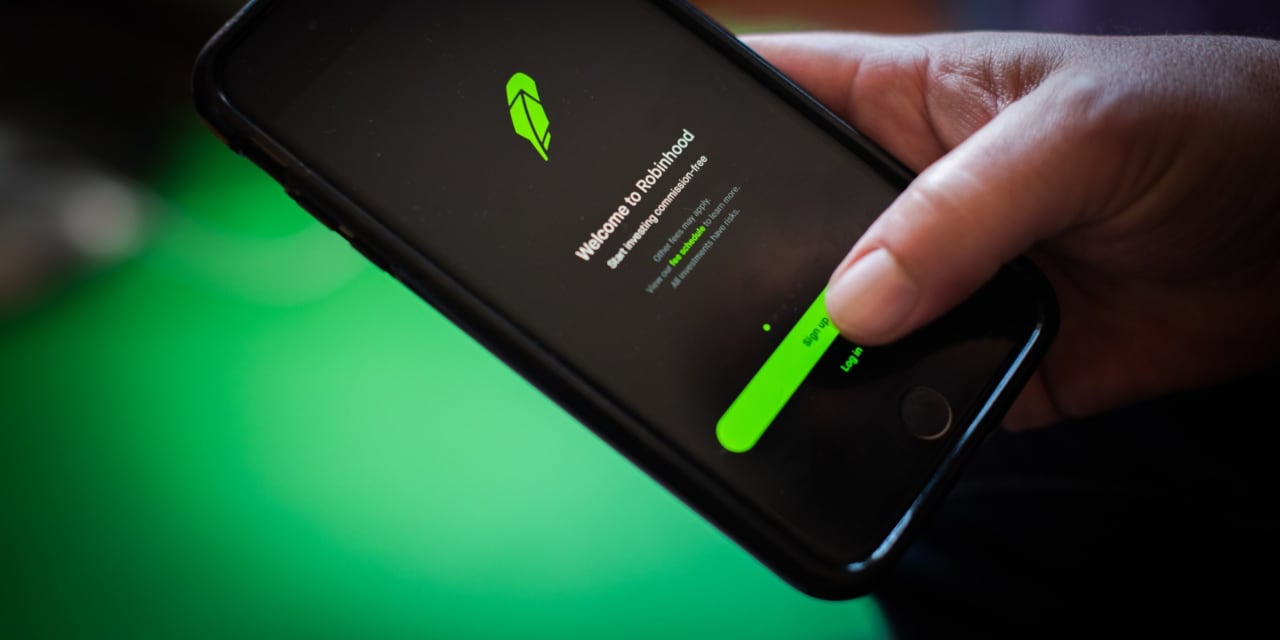Robinhood
has said that banning the payments it gets from financial middlemen would threaten the existence of free stock-trading. The company is about to test that theory itself, as it makes its first international expansion into a country that already bans the practice.
Robinhood Markets
(ticker: HOOD) said Tuesday it is on track to launch trading in the U.K. by the end of the year. The announcement came after a disappointing third-quarter earnings report, which sent the stock down 15% during Wednesday’s session.
The catch is the U.K. doesn’t allow payment for order flow. That was Robinhood’s key revenue generator as it became the country’s fastest-growing brokerage ever during the pandemic, making up more than 80% of revenue in some quarters. The brokerage has repeatedly defended the practice against threats to restrict or ban it in the U.S.
Payment for order flow describes a system where a broker routes customer orders to market-makers that trade stocks, exchange-traded funds, and cryptocurrencies for them, and then make money off the spread between the bid and ask. The market maker sends a portion of that spread back to Robinhood. Other brokers also make money this way, though some like Fidelity have limited the practice. Securities and Exchange Commission Chairman Gary Gensler has said that collecting these payments can be a conflict of interest for brokers. Critics contend the payments incentivize brokers to push customers to trade more, because the more trading that happens on their platforms, the more money they make.
Gensler had told Barron’s in 2021 that the SEC was considering banning payment for order flow. Robinhood pushed back at the time, saying the practice allowed brokers to offer free trading, instead of charging customers for each trade they make. Without it, some brokers would likely bring commissions back, Robinhood Chief Legal Officer Dan Gallagher told Barron’s at the time.
The SEC’s latest proposal to change how trades are executed could limit how much payment for order flow brokerages receive, though experts doubt a full ban will be implemented.
The U.K. expansion, however, shows that Robinhood is confident it can make money even without payment for order flow. Part of the reason for such confidence might be that Robinhood has somewhat reduced its reliance on payment for order flow as interest rates have risen. The company’s net interest income is now its largest source of revenue.
Robinhood CFO Jason Warnick said on Tuesday the company expects to make money in the U.K. from other sources, including securities lending, margin lending, interest on uninvested cash, and its premium Robinhood Gold service that offers investors higher interest rates and other benefits.
“We’re optimistic that we can build a large and growing business there over time that’s eventually profitable,” Warnick said. It could be “a couple of years” before the U.K. business becomes profitable, he said. Robinhood hasn’t yet posted an annual profit after a decade of operation, but analysts expect the company to be profitable in 2024.
Write to Avi Salzman at avi.salzman@barrons.com
Read the full article here


